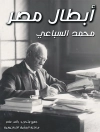Bringing together contributions from social, political, and urban historians, this collection examines social movements in Western European cities from the 1950s to the 1980s. Since their post-war recovery and reconstruction, cities in this part of the world underwent far-reaching societal transitions such as deindustrialisation and the rise of the service economy, the expansion and decline of local welfare regimes, suburbanisation and urban redevelopment, and the democratisation of urban politics. Indeed, the sources for urban activism have been manifold and the rehistoricization of this era through an urban lens is therefore valuable. The authors of this volume seek to provide a comprehensive and multifaceted understanding of how structural socio-economic, political, and cultural changes; ideological shifts; and urban spaces were intertwined in various place-dependent ways. By doing so, they offer fresh comparative and conceptual perspectives on urban activism. The book focuses on the ‘long 1970s’ – a structural break in time across the industrial West, which corresponded with the emergence of new social movements and an urban crisis that left a wasteland of abandoned factories, dilapidated workers’ housing, and stalling redevelopment schemes in its wake. Addressing how the post-industrial revolution socially, ideologically, and physically manifested itself in the urban environment, this book provides useful insights for colleagues in the fields of urban history, social history, political history, and social movement studies.
Table des matières
Chapter 1: Introduction: Urban Activism in Western European Cities from the 1950s to the 1980s.- Chapter 2: Provocations at the limits of urbanity: historical perspectives on Cold-War urban social movements.- Chapter 3: The Magic Centre: Sociocultural Critiques on Urban Redevelopment in Amsterdam 1965-1970.- Chapter 4: Travelling barricades: Inter-urban squatter networks during the early 1980s.- Chapter 5: Transcending the Local: World Shops and the Politics of Place, 1969-1988.- Chapter 6: Contested Neighbourhoods of Arrival: Migration and Conflicts over Urban Space in the 1970s in Hamburg.- Chapter 7: Let’s Take the City: Turin’s Urban Movement, 1968-1975.- Chapter 8: Fighting for the City at the Neighbourhood Scale: the Comitati di Quartiere in 1970s Rome.- Chapter 9: The Castlemilk Claimants Union and local community activism on the urban fringe in Glasgow during the 1970s.- Chapter 10: In Defence of a Coalfield Community: Urban Protest in 1950s Wales.- Chapter 11: A Petit Bourgeois Urban Social Movement? The Case of Britain’s National Union of Small Shopkeepers.
A propos de l’auteur
Tim Verlaan is Assistant Professor of Urban History at the Amsterdam Centre for Urban History in the Netherlands. He is an Associate Editor at Urban History and a founding member of Failed Architecture.
Christian Wicke is Assistant Professor of Political History at Utrecht University in the Netherlands. He is founding chair of the working group ‘Memory & Deindustrialisation’ within the European Labour History Network. Christian has published several academic books, including Deindustrialisation in Twentieth- Century Europe (Palgrave, 2022).












